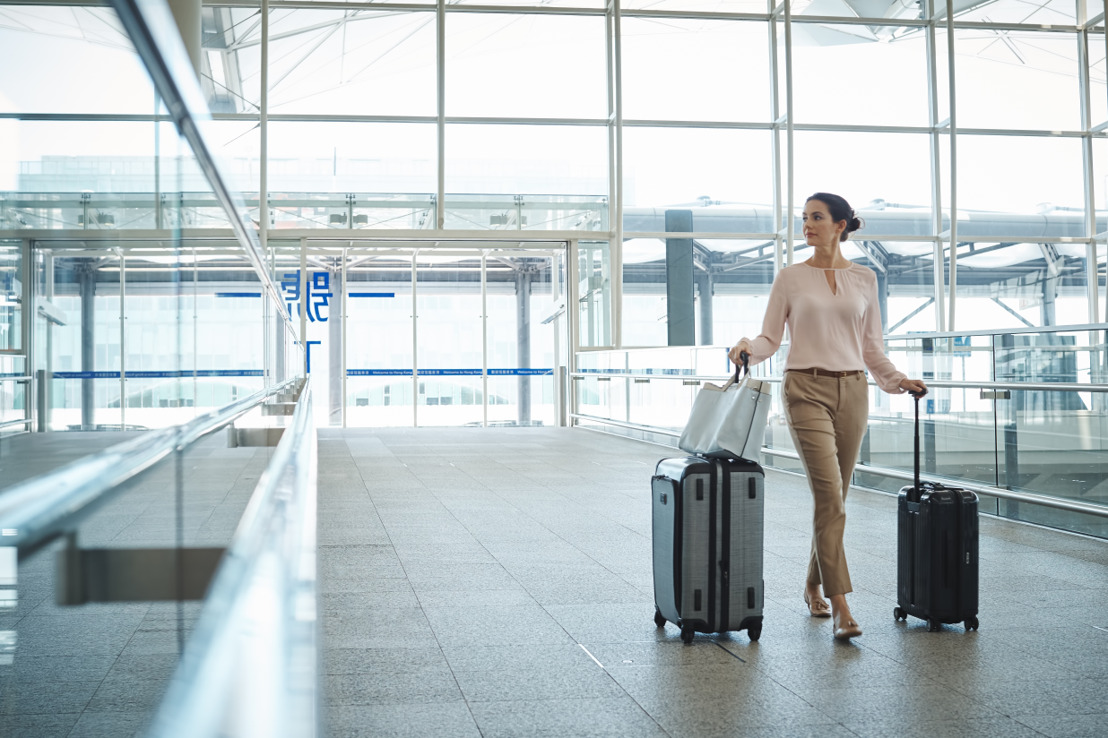
Remember back in 2015 when hoverboards became all the rage? They may have just been a short-term craze but airlines nonetheless acted swiftly, banning them from carriage onboard flights. The problem was that hoverboards are powered by lithium batteries and unfortunately they have a nasty habit of overheating and catching fire.
And once they do overheat, the resulting fire can be really difficult to put out. It’s all because lithium batteries are made up of a series of fuel cells. If just one cell overheats, a chain reaction starts which can ultimately lead to the battery exploding (known as a thermal runaway event).
Now airlines are turning their attention to what could be an even bigger threat – the rising popularity of so-called ‘smart bags’ or ‘smart luggage’. Most of these bags come fitted with a lithium battery and USB sockets to allow the user to charge their smartphone or other gadgets. Some also come with inbuilt GPS, wifi, electronic bag tags and scales.
With Smart Bags likely to be popular Holiday gifts for intrepid explorers and business travellers alike, airlines are now implementing rules to prevent the possibility of a fire onboard one of their aircraft. The new rules follow detailed guidance recently issued by the International Aviation Transportation Association (IATA).
What does the guidance say?
The “Smart Baggage with Integrated Lithium Batteries and/or Electronics” guidance states:
A smart bag with a “power bank offered as checked baggage must have the power bank removed prior to being checked-in.”
And if for whatever reason, the bag has to be surrendered at the gate (say, if there’s no more space in the overhead lockers) then the battery pack has to be removed before it’s placed in the hold. After all, fighting a lithium battery fire in the cabin is harder enough – but an uncontrolled fire in a cargo hold could prove disastrous.
If the battery can’t be removed then it can’t be taken on the flight. Period.
Does this apply to other lithium batteries?
These new rules are simply bringing Smart Bags inline with existing guidance on the carriage of lithium batteries in the cargo hold of commercial airlines. Passengers are already warned against packing spare batteries in their hold luggage and personal electronic devices (PED’s) should always be carried in your cabin baggage.
It’s for exactly this reason that IATA reacted with horror to the U.S. Laptop Ban in the summer. The ban resulted in airlines including Emirates, Etihad and Qatar Airways storing passenger laptops and other large electronic devices in the cargo hold on flights to the United States. This, despite the obvious fire safety risks.
When will the new rules be implemented?
Major international airlines have acted quickly to implement the new rules. Both American Airlines and Delta have said they’ll be enforcing the restrictions from January 15th, 2018. Other U.S. carriers are following suit. Meanwhile, Hong Kong-based Cathay Pacific will ban smart bags with non-removable batteries from January 1st.
In a statement, American Airlines explained: “As part of safety management and risk mitigation, we always evaluate ways to enhance our procedures, and the Safety team at American has conducted its own analysis of these bags.”
“Beginning Jan. 15, customers who travel with a smart bag must be able to remove the battery in case the bag has to be checked at any point in the customer’s journey. If the battery cannot be removed, the bag will not be allowed.”
What bags are approved by the FAA?
Delta has also moved to warn consumers about certain Smart Bags that are advertised as being approved by the Federal Aviation Administration or Transportation Security Administration. That’s simply not true, says Delta. A spokesperson explained: “To date, neither the TSA nor FAA have endorsed a smart bag as approved.”
If you do take your Smart Bag into the cabin then most airlines – including American, Delta and Cathay – won’t make you remove the battery. Although IATA isn’t entirely convinced that’s the safest approach.
They say that the most effective way to fight a lithium battery fire is to completely immerse the device in water – that’s exactly how airlines teach their flight attendants to fight such fires. But with lithium batteries now hiding within luggage, IATA is concerned identifying the source of the fire is going to become a lot harder.
Oh, and of course, a carry-on sized suitcase is going to be really difficult to completely immerse in water onboard an aircraft – a risk that IATA describes as a “considerable hazard.”
What about other gadgets?
For now, the IATA guidance is only concerned with lithium batteries. Smart bags that come with wifi, GPS or RFID technology should come with an independent means to turn these functions off. At the moment, electronic luggage tags have been deemed safe due to the way they’re designed.
Mateusz Maszczynski honed his skills as an international flight attendant at the most prominent airline in the Middle East and has been flying ever since... most recently for a well known European airline. Matt is passionate about the aviation industry and has become an expert in passenger experience and human-centric stories. Always keeping an ear close to the ground, Matt's industry insights, analysis and news coverage is frequently relied upon by some of the biggest names in journalism.







